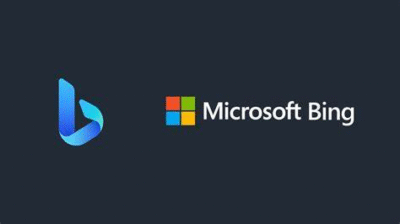
Try Bing search engine now!
Bing Search Engine and Its AI-Powered Evolution
In the dynamic world of search engines, where Google has long held a commanding lead, Microsoft’s Bing has steadily carved out its niche, demonstrating a consistent commitment to innovation and user experience. Launched in June 2009 as a successor to MSN Search and Windows Live Search, Bing has evolved significantly, particularly with its recent integration of advanced artificial intelligence, aiming to redefine how users interact with online information.
A Journey of Innovation and User-Centric Features
From its inception, Bing aimed to provide a “decision engine” rather than just a simple search tool.3 Early features highlighted a user-friendly interface, dropdown menus for suggested searches, hover previews of results, and direct display of information on the search results page. Over the years, Bing has incorporated a variety of innovative elements:
- Enhanced Answers: Bing frequently provides “Answers” – rich content often appearing at the top or side of search results. These offer direct answers to questions, along with related resources and, increasingly, AI-powered summaries.
- Image and Video Experiences: Bing offers robust image and video search capabilities, allowing users to find similar content by uploading images and providing immersive visual results with thumbnails and video previews.
- Bing Maps: A virtual map service that allows users to search for locations, get directions, and access information about businesses, similar to other popular mapping services.
- Instant Answers: This feature provides quick responses to common queries like flight schedules, weather, calculations, and dictionary definitions, streamlining the search process.
- Timeline: For certain entities, such as public figures, Bing can display a timeline of relevant information and achievements, offering a comprehensive overview.
- Auto Suggest: As users type, Bing provides real-time suggestions, aiding in faster and more accurate query formulation.
Bing’s core ranking factors, like other search engines, revolve around relevance, quality, credibility (including authority and citations), user activity, content freshness, and location.
The AI Transformation: Microsoft Copilot at the Forefront
The most significant recent development for Bing has been its deep integration with artificial intelligence, particularly through Microsoft Copilot (formerly Bing Chat). Launched in February 2023, this AI chatbot experience is built upon OpenAI’s powerful GPT-4 large language model, fine-tuned with Microsoft’s proprietary Prometheus model. This integration has fundamentally transformed Bing’s capabilities:
- Conversational Search: Users can engage in interactive, conversational queries, refining their questions in real-time for more precise and nuanced answers. Copilot can generate human-like text, summarize articles, write creative content (poems, stories, code), and even provide travel itineraries.
- Image and Video Creation: Beyond searching for existing media, Bing now offers Bing Image Creator (powered by DALL-E 3) and Bing Video Creator (using Sora technology). These tools allow users to generate unique images and videos from text prompts, opening up new possibilities for creative expression and content generation.
- Grounding with Bing Search: This feature, part of Azure AI Agent Service, allows developers to integrate real-time web data with large language models, addressing the static knowledge limitations of LLMs and ensuring AI responses are based on the most current information available.
- Seamless Integration: Copilot is integrated not only into the Bing search page but also into Microsoft Edge’s sidebar, allowing users to interact with the AI without leaving their current Browse page.18 This multi-modal access enhances productivity and user convenience.
Microsoft has also emphasized the importance of a “healthy web ecosystem” with its generative search, aiming to maintain clicks to websites by clearly citing sources and presenting a balanced mix of AI answers and traditional organic search results.
Market Position and Outlook
While Google continues to dominate the global search engine market share, Bing has solidified its position as a significant contender. As of May 2025, Bing holds approximately 12% of the worldwide search engine market share. In the United States, its presence is stronger, reaching around 15.56% of the market, a growth partially attributed to its AI features and deep integration with Microsoft products like Windows and Xbox.
Bing’s daily search volume is substantial, with over 900 million searches per day globally. The continued investment in AI, particularly with Microsoft Copilot, indicates Microsoft’s strategic focus on evolving Bing into a more intelligent and interactive decision engine, offering a distinct alternative in the competitive search landscape. As AI-powered search becomes mainstream, Bing’s proactive embrace of these technologies positions it as a key player to watch in the future of online information retrieval.



